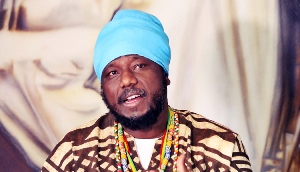Sunyani, May 15, GNA - Mrs. Agnes A. Adu-Boateng, the Brong-Ahafo Regional Director for the Value Added Tax Service (VATS), has appealed to the public and consumers to volunteer information for the service to recover taxes that otherwise would have been lost to the state in return for a handsome reward.
She said as part of the effort to maximize revenue mobilization, the agency had an "Informant Award System" for persons who would assist in exposing traders and business operators who should have registered with the agency but had refused to do so as well as those who had registered and are not issuing the VAT invoice. Mrs. Adu-Boateng, who was addressing a one-day tax seminar for religious bodies, said non-issuance of VAT invoice to buyers and consumers by traders and business operators was a problem confronting the agency.
The seminar jointly organised by the Internal Revenue Service (IRS) the VAT service was under the theme "Render unto Caesar the things that are Caesar's" aimed at educating the participants on taxation obligations, rights and responsibilities of religious bodies and leaders on Ghana's taxation system. The participants numbered about 150 and they included Christian and Moslem religious leaders from the region.
Mrs. Adu-Boateng said some religious groups are engaged in some taxable activities like operating bookshops, running of transport, schools and hotels, canteen and hostel services, hiring of canopies and chairs but do not honour their tax obligations. She said she believed that might be the result of ignorance and appealed to such bodies "to get all their businesses registered and charge the tax for the government." Mr. Kwasi Bobie Ansah, a Chief Inspector of the IRS, said "taxable gift" meant buildings of a permanent or temporary nature, land, shares, bonds and other securities.
He said money including foreign currency, business and business assets, any means of transportation among others formed part of taxable gift and therefore urged the participants to consider it as a moral obligation to declare their taxes on any gift, beside that of their official remunerations.
Business News of Friday, 15 May 2009
Source: GNA












